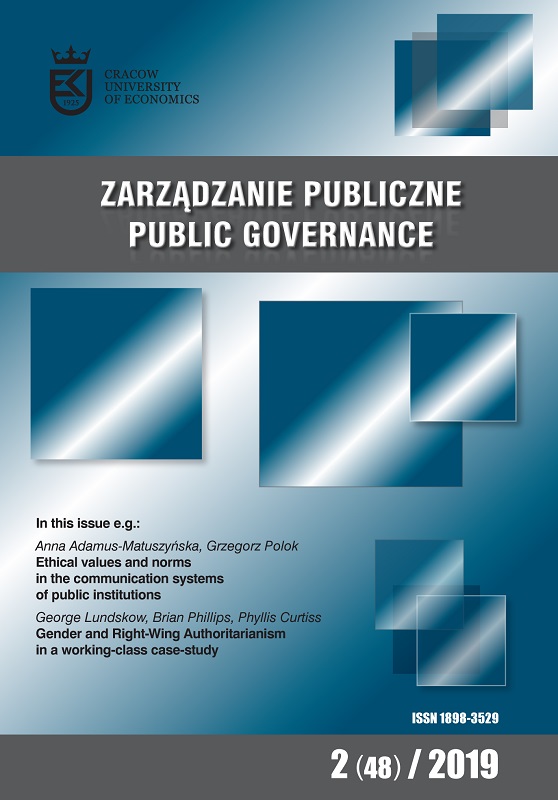Management of the Kraków Functional Urban Area, in Poland, using a European Union Instrument: Integrated Territorial
Management of the Kraków Functional Urban Area, in Poland, using a European Union Instrument: Integrated Territorial
Author(s): Aleksander NoworólSubject(s): Politics / Political Sciences, Social Sciences, Geography, Regional studies, Regional Geography
Published by: Uniwersytet Ekonomiczny w Krakowie we współpracy z Wydawnictwem Naukowym Scholar
Keywords: metropolitan governance; metropolitan scale; functional urban area; EU cohesion policy; integrated territorial investments; Poland; Kraków
Summary/Abstract: The objective of this paper is to analyse the ways in which one of the European Union’s Cohesion Policy instrument,i.e. the Integrated Territorial Investment (the ITI), can be used, with specific reference to the example of the KrakówFunctional Urban Area (the KFUA). ITI is an instrument of EU policy and was introduced during the 2014–2020 programperiod. It was designed to promote the development of functional areas, especially on a metropolitan scale, and tostrengthen the co-operation ability of local entities.Research design: The reasoning utilised in this article uses participant observation as the primary research method.The complimentary analytical methods are desk research of documents, written questionnaires and individual directinterviews. It is important to underline the direct involvement of the author in the preparation of the ITI Strategy forthe KFUA, participative workshops concerning the introduction of ITIs, and expert reports commissioned by the KrakówMetropolis Association (the KMA).The findings enable one to clarify mechanisms disclosed in the national scale with specific features also presentin the KFUA. The first part of this paper includes a brief review of the literature concerning the nature of the metropolitanscale, management of the development of functional urban areas, and deliberation procedures. In the second part,the author presents the results of his qualitative research revealing the way an instrument of ITI is implemented bythe KMA. Tools used by the KMA, taking into consideration juridical and cultural conditioning, demonstrate how the ITIinstrument can become, beyond financial support for communities, a real creator of a co-operative ecosystem of entities.The added value is to show that the ITI instrument, despite some bureaucratic sluggishness, can be, thanks to understandingthe essence of “metropolitan governance”, an approach which builds real territorial co-operation.Article classification: research and conceptual article
Journal: Zarządzanie Publiczne
- Issue Year: 2019
- Issue No: 48
- Page Range: 26-36
- Page Count: 11
- Language: English

